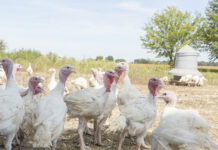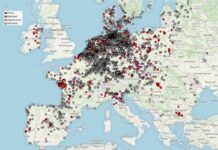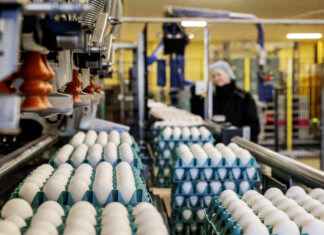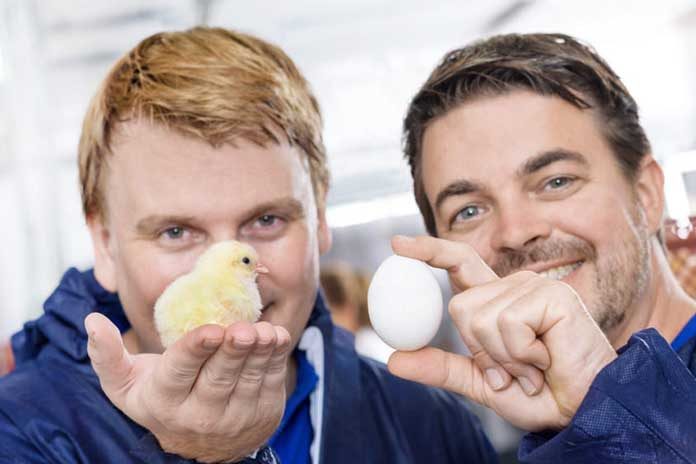
Discovering whether a chick is male or female while it is still in the egg. Leiden biotech company In Ovo, a spin-off of Leiden University, has been given an investment of several million euros to further develop its unique test method. The founders – both Leiden alumni – Wouter Bruins and Wil Stutterheim are now set to market their successful prototype.
The major part of the investment of several millions of euros comes from Evonik, originally a German chemicals company, and the venture capital company Visvires New Protein. Rabobank Leiden-Katwijk has also contributed what is known as a Subordinated Innovation Investment. Leiden University, which has been closely involved with the company from its outset, is also investing in In Ovo’s further development. The company is a spin-off of the Leiden Institute of Biology and now works closely with the Leiden Academic Centre for Drug Research (LACDR).
One-day-old chicks destroyed
At the moment, newly hatched chicks are sorted manually according to sex. Because the males cannot lay eggs, they are destroyed immediately after hatching. In the Netherlands alone, around 45 million male chicks are killed every year. On a worldwide basis, we are talking about 3.2 billion one-day-old, male chicks. The In Ovo method of determining a chick’s sex while still in the egg is expected to reduce these numbers drastically.
In Ovo’s method of sexing chickens can determine the sex of an egg within seconds on day nine after fertilisation. A miniscule hole is made in the egg – a method that is currently used for vaccination and that has no adverse effect on the chicken embryo – and a tiny sample is removed. By measuring the presence of a specific biomarker, it is possible to determine whether the embryo is male or female.
Better for animals, farmers and the environment
Sorting the chicks and killing the one-day-old males is a stressful process. Being able to determine the chick’s sex while it is still in the egg, and while its sensory perception is not yet developed, represents a great step forward in animal welfare. An advantage to the farmer is that it is also more efficient. And not only that, the method is environmentally friendly, too. Fewer eggs need to be incubated, which results in lower CO2 emissions and lower energy consumption, all of which have financial benefits for farmers. “The method allows for large-scale screening of hatching eggs, without the need for huge adjustments to the logistics of hatcheries”, In Ovo founder Wouter Bruins explains. The In Ovo technique is expected to be commercially available in 2020.
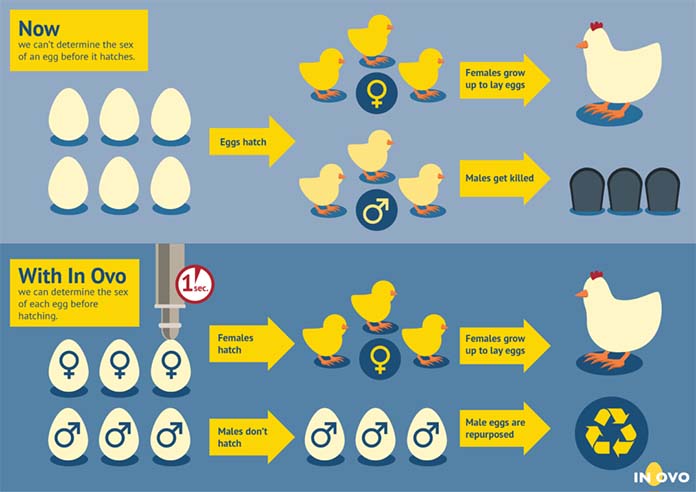
The company
Start-up In Ovo was founded in 2013 by the then Leiden students Wouter Bruins (Biology) and Wil Stutterheim (Biomedical Sciences). Thanks to support from Leiden University, the Ministry of Economic Affairs, the Dutch Society for the Prevention of Cruelty to Animals, the Dutch hatcheries (COBK) and LTO Noord (Agriculture and Horticulture Organisation), the young biotech company has been able to demonstrate the effectiveness of their method. Bruins and Stutterheim are now working closely with Thomas Hankemeier, professor of Analytical Sciences, and the Leiden Academic Centre for Drug Research (LACDR) to develop and validate their technique. “We are working on a new technology for making sure that we can screen the eggs not only quickly, but also at an affordable price”, Hankemeier says.
The biotech company was assisted in acquiring this investment by AenF Partners (Utrecht).
Text: Marieke Epping


